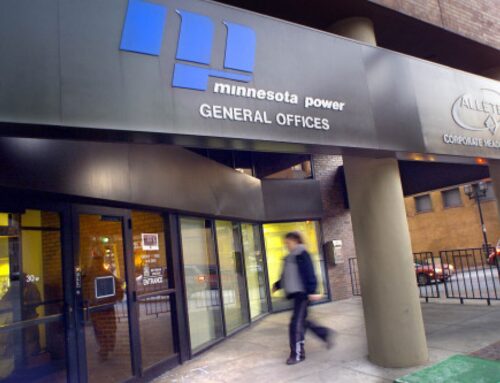Push for Change: Northeast Georgia Organizations Pursue Environmental Justice
September 23, 2025
Views: 9

Hurricane season is here, and Athens received its share of downpours over the past month. The heavy rain has left low-income communities vulnerable to flooding throughout Northeast Georgia, and this is not the only problem.
“There’s also a very big issue with regards to flooding as well. So flooding and coastal erosion and sea level rise, because the seas are rising and the ability to protect the land is definitely a challenge,” said Christina H. Fuller, associate professor at the University of Georgia College of Engineering.
After graduating from the Harvard T.H Chan School of Public Health and earning her master’s and doctoral degrees in environmental health, Fuller earned her bachelor’s degree from Northwestern University in environmental engineering. Now, she researches environmental health and justice at the University of Georgia.
According to the American Public Health Association, environmental justice means all people, regardless of race, background, or income, should have access to a healthy environment, safe living conditions and environmental benefits.
Fuller addresses environmental justice issues such as air pollution disparities, wood pellet factories and flooding. Challenges arise when funding shortages and policy changes cut research continuity.

“I’ve had two of my grants that were terminated, and we’re right in the middle doing this really good research that was funded to answer these key research science questions,” said Fuller. “And now they are canceled, and we can’t continue anymore.”
While Fuller focuses on advancing low-income environmental justice research, Tawana Smith Mattox of Athens Land Trust, a nonprofit organization in Athens, addresses community environment impacts pointing to the challenges rural communities are facing.
“Many homeowners are excluded from state weatherization or solar programs due to structural issues they cannot afford to repair,” said Mattox, an Athens native. “We bridge this gap by funding critical repairs, followed by efficiency upgrades like HVAC systems or water heaters.”
According to Fuller’s findings, wealthier areas in Athens are able to construct different types of infrastructure for weather protection, but not all areas can.
“If you don’t have very good infrastructure, then you’re going to be much more vulnerable when a hurricane comes through,” said Fuller, who also noted environmental justice research has faced recent challenges with funding, slowing down progress on solutions.
Federal funding provided by the Environmental Protection Agency grants money to environmental justice programs across the United States.

Alongside Athens Land Trust, the Athens Energy Opportunity Program takes a resident-driven approach to deducting energy costs and to help prevent displacement of families in historically marginalized neighborhoods.
“Combating this requires relentless community voices — tracking planning and zoning and Mayor and Commission agendas, following the money, and pressing elected officials to act” said Mattox.
Athens Land Trust created Young Urban Builders, a program integrating intergenerational workforce development which trains youth in home repair supporting community revitalization for the benefit of elders.
“From the very beginning of our repair and energy efficiency initiative, we prioritized listening —creating space for residents to share their needs, experiences, and ideas about what would make their neighborhoods more sustainable,” said Mattox.
By giving residents a voice, environmental justice researchers and non-profit organizations gained a greater understanding of what the community needs.
Athens Land Trust created three advisory boards in West Broad, North and East Athens. The boards ensure that Athens residents are at the forefront and have a representative for each community in guiding decisions.
“These boards not only increase transparency around funding and projects, but also build trust within the community,” said Dr. Mattox. “Advisory members share information with their neighbors, lift up concerns, and mobilize around shared priorities to improve quality of life.”
With transparency, building trust and allowing residents to be the center focus, Athens’ rural communities experience beneficial outcomes in overcoming environmental injustices.

In a push for change, residents are seeking for natural resources from rivers, forests and other natural ecosystems to improve their homes. Research from both Fuller and Mattox describes what all residents want is a safe community.
“Having a vibrant natural ecosystem for them to recreate in and just to utilize and to teach children about that. Viable jobs as well that are safe and pay a living wage so that, you know, people can stay in their communities too,” said Fuller.
Mattox’s first priority is ensuring residents are heard by bringing decision-makers together to address concerns of local challenges. Education on health impacts, empowerment and weather infrastructure is key to creating a sustainable future.

Fuller and the University of Georgia have collaborated with the Department of Natural Resources and Environmental Protection Division to address environmental challenges in Northeast Georgia.
Alongside receiving funding from the U.S Environmental Protection Agency, U.S Department of Agriculture and the National Institute of Health, local organizations are taking initiatives to improve low-income communities hit by severe weather.
Environmental justice in Athens still faces challenges of funding shortages, inadequate infrastructure and policy changes. With organizations like Athens Land Trust and the research conducted by Fuller and Mattox, low-income Athens communities are on their way to become a sustainable, climate-resilient, environmentally diverse community.
Paige Collins is a senior majoring in journalism at the University of Georgia.
Search
RECENT PRESS RELEASES
Related Post




